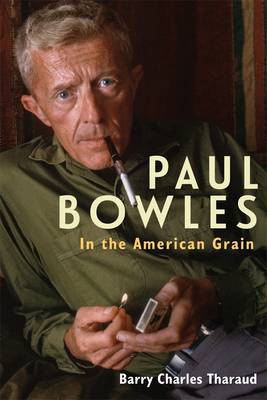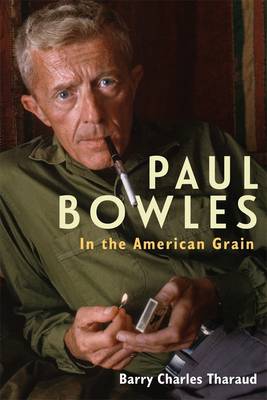
- Afhalen na 1 uur in een winkel met voorraad
- Gratis thuislevering in België vanaf € 30
- Ruim aanbod met 7 miljoen producten
- Afhalen na 1 uur in een winkel met voorraad
- Gratis thuislevering in België vanaf € 30
- Ruim aanbod met 7 miljoen producten
Zoeken
Omschrijving
Paul Bowles has often been considered a cult writer, a literary renegade: he lived more than fifty years as an expatriate in Morocco, and according to Norman Mailer, his works "let in the murder, the drugs, the incest, the call of the orgy, the end of civilization." In recent decades Bowles has found greater acceptance as a serious writer, as evidenced by the two-volume, 2,000-page Library of America edition of his works published in 2002. Still, he has rarely if ever been seen as having written in the antinomian tradition of Emerson and his literary descendants. The present book makes the case for doing so by demonstrating basic Emersonian attitudes and objectives in Bowles' life and works, especially in his focus on human consciousness and perception and on the need for the individual to escape from the trammels of social and cultural conditioning. Bowles' intellectual pursuits seem to have developed at first from his own spontaneous attitudes, which were then reinforced by his conservative and individualistic New England background on both sides of his family and deepened by a serious study of anthropology, Emersonian transcendentalism, and related "Oriental" thought such as the theosophy of Krishnamurti. Despite his half century in Tangier, Bowles is a writer who is thoroughly "in the American grain."
BARRY CHARLES THARAUD is Professor Emeritus, Colorado Mesa University, and is the editor and publisher of the international scholarly journal Nineteenth-Century Prose.
BARRY CHARLES THARAUD is Professor Emeritus, Colorado Mesa University, and is the editor and publisher of the international scholarly journal Nineteenth-Century Prose.
Specificaties
Betrokkenen
- Auteur(s):
- Uitgeverij:
Inhoud
- Aantal bladzijden:
- 234
- Taal:
- Engels
- Reeks:
- Reeksnummer:
- nr. 14
Eigenschappen
- Productcode (EAN):
- 9781640140806
- Verschijningsdatum:
- 20/11/2020
- Uitvoering:
- Hardcover
- Formaat:
- Genaaid
- Afmetingen:
- 152 mm x 229 mm
- Gewicht:
- 485 g

Alleen bij Standaard Boekhandel
+ 354 punten op je klantenkaart van Standaard Boekhandel
Beoordelingen
We publiceren alleen reviews die voldoen aan de voorwaarden voor reviews. Bekijk onze voorwaarden voor reviews.







